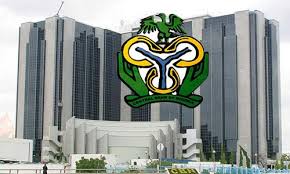December 15, 2020
AN OVERVIEW OF THE BANKS AND OTHER FINANCIAL INSTITUTIONS ACT 2020
By Akorede Folarin (Associate)
The amendment and replacement of the Banks and Other Financial Institutions Act (BOFIA) 2004, has long been touted to be the next major milestone in the country’s ambitious drive towards creating an enabling business environment in the country and improving the Nigerian investment climate.
The now repealed Act had been in operation for about 16 years without amendment, despite progressive innovations in the banking and finance sector globally and the increasing complexities as a result of disruptive technologies and their associated risks. Also, lax corporate governance under the old Act had given room for insider abuse and corruption, culminating in the humongous increase in non-performing loans (NPLs) in the country’s banking system. Additionally, the erosion of faith in the Nigerian banking system as a result of the 2004 and 2008 financial crises which can be traced to the excessive risk taking, reckless credit facilities, and other unethical practices in the system had resulted in the long and growing public clamour by stakeholders for the review of the regulatory framework for banking and finance in Nigeria.
The enactment of the Banks and Other Financial Institutions Act (BOFIA) 2020 is, therefore, intended to update the existing Act to tackle some of these debilitating challenges in the Nigerian banking and financial services industry occasioned by an Act which has proved to be grossly inadequate in the present ecosystem and to bring it in line with global best practices. The Act seeks to regulate banking and businesses of other financial institutions by prohibiting the carrying on of such businesses in Nigeria except under license and by a company incorporated in Nigeria; update laws governing Banks, Financial Institutions and Financial Services Companies; enhance efficiency in the process of obtaining/granting banking licenses; accurately delineate the regulatory functions of the Central Bank of Nigeria (“the Bank” / “CBN”) in the financial services industry; update and incorporate the laws for enacting, licensing and regulating microfinance banks; regulate the activities of financial technology companies (Fin-Techs); and update commensurate penalties for regulatory breaches in the financial services sector.
The key provisions of the new Act are highlighted as follows:
BANKING BUSINESS
Operating without License
- The Act makes it an offense for any person/body to transact banking business without a valid license issued by the CBN. The Act goes further to provide a stiff penalty of 5 years imprisonment or a fine not less than N50 million or two times the cumulative deposits or other amount collected or both imprisonment and fine for anyone who violates this provision. This we expect will serve as a deterrent to operators of Ponzi schemes who swindle naïve investors through fraudulent means. The Central Bank of Nigeria (CBN) itself has previously iterated that widespread innovation in channels for delivering financial services, emergence of new types of regulated institutions, advancements in supervisory techniques and methodologies are some of the contemporary developments that necessitate the need to upscale the legal framework for banking regulation and supervision in Nigeria.


